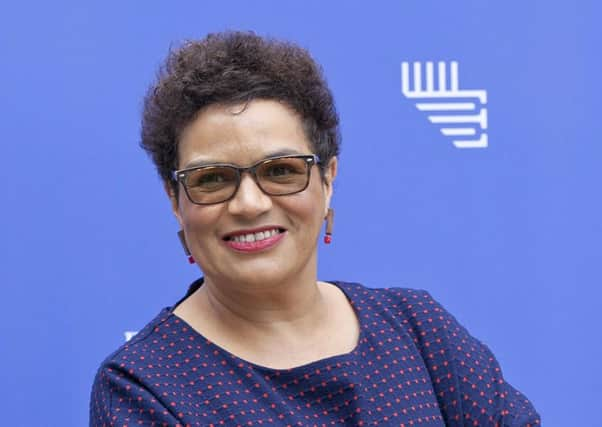Festival director: Scotland needs a rethink to suit the digital age


That re-thinking theme ran throughout O’Hagan’s lecture, whose ambition was reflected in a title “Scotland, Your Scotland” which nodded across the decades to Orwell’s famed 1941 essay “England, Your England”. We sing collectively of sending proud Edward home to think again, he noted, “but what if – all along – it was us who must think again, as our native philosophers taught us to?”
For him, the first moments came driving home from the Glasgow count at the independence referendum – lost but, he felt even at the time, somehow won. Confirmation of that intuition came soon enough; listening to David Cameron playing the English card on the radio the very next day – “the most stupid and divisive act since Margaret Thatcher introduced the poll tax”; sitting in the Supreme Court and seeing – “in a shattering moment to those of us who had always supported the idea of the United Kingdom” – “how willing May was to ride rough-shod over Scotland’s discrete authority”.
Advertisement
Hide AdAdvertisement
Hide AdThen there was Brexit. For O’Hagan, whose own immersion in the digital world has been intensive, not least by being Julian Assange’s would-be biographer, and whose own internationalist credentials as a writer are evident in his work, this was the final straw, the moment at which Britain started leading Scotland backwards. Britain “had mismanaged itself out of existence and Scotland was free to succeed or fail in its own ways.”
So what would the future hold? Here O’Hagan, who emphasised his own independence from any political party, seemed less certain. Instead of the young being betrayed by a freshly boundaried world, we could be “one of the world’s strongest digital republics,” “part of a neural network whose natural boundaries are decency and justice”. Scotland could perhaps teach the world “how to author a new Gettysburg address for Peace; showing the world – with historical examples – “how to author a Vindication of the Rights of Robots”.
From soaring rhetoric back down to earth, or at least down to detail – the kind of detail that makes the portrait of a long marriage in Midwinter Break, Bernard MacLaverty’s first novel in 16 years, sound so compellingly spot on. Even before his compelling reading yesterday morning, I couldn’t wait to read it. Now I’m almost angry with impatience.
Get the details right, he said, quoting Flannery O’Connor – giving the example of a man walking a dog by night whose eyes, caught in headlights, turned “swimming-pool green” – and readers would feel a chime of recognition that would make them follow the writer even when the story took an emotional or philosophical (or, as here, a spiritual) turn.
That lesson works, as Jackie Kay’s event immediately afterwards proved, even with poetry too. In one of her poems from her forthcoming collection Bantam (due out in October: another occasion of angry impatience) she noted how all those collected rose petals of her childhood never turned into the perfume of her dreams, no matter how much she stirred or her mother assured her otherwise. If you imagine such a thing as an audible nod of recognition, that was what you’d have heard in the Main Tent as she finished.
And right enough, the audience followed her into deeper material, such as the poem specially commissioned to mark the centenary of the meeting of Wilfred Owen and Siegfried Sassoon at Craiglockart Hospital.
That’s about as high a bar as a poet can find. Had those two not met, British war poetry would have been completely different, maybe even pruned of some of its sheer rage and the streak of furious idealism that drives Kay’s own work. But the five interlinked poems she read were equal to the challenge, from the first, in the voice of the hospital, which imagined it looking down on the broken men within its walls, to others about healing, friendship and hope.
Advertisement
Hide AdAdvertisement
Hide AdAt the end, the first question was from a woman who said she was speaking for visually impaired people. Could the Scottish Poetry Library ask Kay to record all of her poems? “Because,” she added, “most of us don’t want to hear her poetry in any other voice”. I can understand that completely.